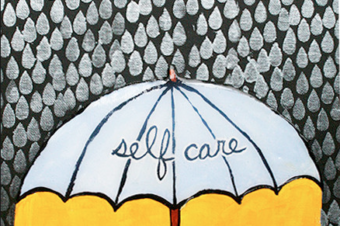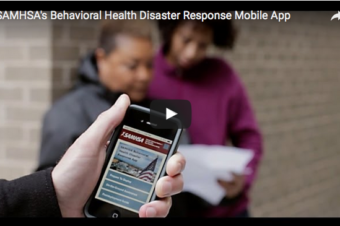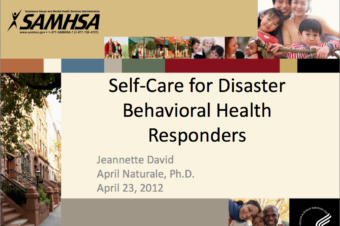All types of disasters can create anxiety, fear, and panic. Public health emergencies may be especially frightening because many times the cause of symptoms or illness is not readily apparent until after effects begin. Those who survive hurricanes, tornadoes, or wildfires perceive and remember the disaster incident. On the other hand, survivors of an outbreak of disease or water contamination crisis may not be aware of the emergency until health problems or other issues arise. Read more.
Similar Posts
SAMHSA Disaster Behavioral Health Information Series installment
This installment focuses on the behavioral health effects of responding to a disaster. It provides... Read More
The SAMHSA Behavioral Health Disaster Response App
SAMHSA’s mobile application (app) helps behavioral health responders provide quality support to survivors. With the... Read More
Self-Care for Disaster Behavioral Health Responders
The goal of the Self-Care for Disaster Behavioral Health Responders Podcast is to provide information,... Read More
Helping Responders in the Wake of Disaster
It’s crucial to help medical professionals, first responders, family members, and victims both administer or... Read More
Behavioral Health Treatment Providers Manual
The manual can develop COOP’s to guide training for staff and volunteers in their roles... Read More
Tips for Disaster Responders: Preventing and Managing Stress
The sheet provides tips to help disaster response workers prevent and manage stress. Includes strategies... Read More




